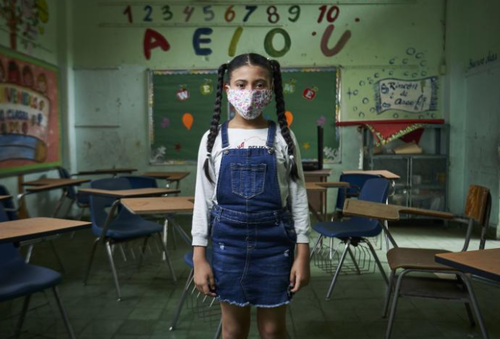Source: Zero Hedge
There’s no question that the virus pandemic has impacted the younger generation that could deeply scar them, mentally and physically, for years. More than one year since the pandemic began, UNICEF warns, “progress has gone backward across virtually every key measure of childhood.”
“The number of children who are hungry, isolated, abused, anxious, living in poverty and forced into marriage has increased. At the same time, their access to education, socialization and essential services including health, nutrition, and protection has decreased”, Henrietta Fore, UNICEF Executive Director, said in a statement.
“The signs that children will bear the scars of the pandemic for years to come are unmistakable,” Fore continued.
UNICEF’s latest data is a stark reminder that shuttering the economy and schools for an extended period is a flawed policy decision. In a rare moment on Wednesday, Anthony Fauci told CNN there is no scientific reason why people who have had the COVID-19 vaccine are still having their freedoms restricted. Further, there has been widespread evidence showing that children’s immune response to the virus is better than adults’. But still, many schools are closed around the world…
Fore requested governments place children “at the heart of recovery efforts,” particularly by “prioritizing schools in reopening plans.”
Here are UNICEF’s results that show “virtually every indicator” of progress for children has reversed under lockdowns:
- In developing countries, child poverty is expected to increase by around 15 percent. An additional 140 million children in these countries are also already projected to be in households living below the poverty line.
- Schools for more than 168 million schoolchildren globally have been closed for almost a year. Two-thirds of countries with full or partial closures are in Latin America and the Caribbean.
- At least 1 in 3 schoolchildren has been unable to access remote learning while their schools were closed.
- Around 10 million additional child marriages may occur before the end of the decade, threatening years of progress in reducing the practice.
- At least 1 in 7 children and young people has lived under stay-at-home policies for most of the last year, leading to feelings of anxiety, depression, and isolation.
- As of November 2020, an additional 6 to 7 million children under age 5 may have suffered from wasting or acute malnutrition in 2020, resulting in almost 54 million wasted children, a 14 percent rise that could translate into more than 10,000 additional child deaths per month – mostly in sub-Saharan Africa and South Asia. With a 40 percent decline in nutrition services for children and women, many other nutrition outcomes can worsen.
Politicians and unelected officials experimented with lockdowns, social distancing, and school delays without considering the long-term consequences. So far, according to the research above, the impact on younger generations has been horrific. We’ve mentioned before – this has produced a slow-motion mental health explosion.


